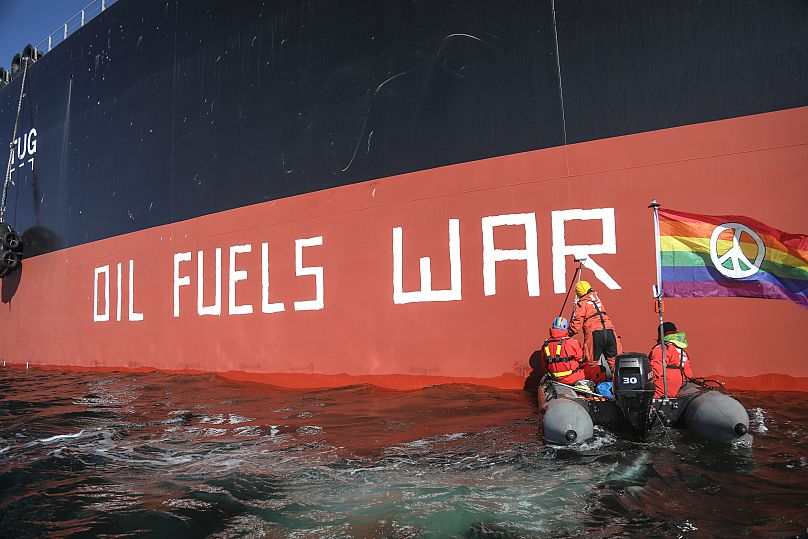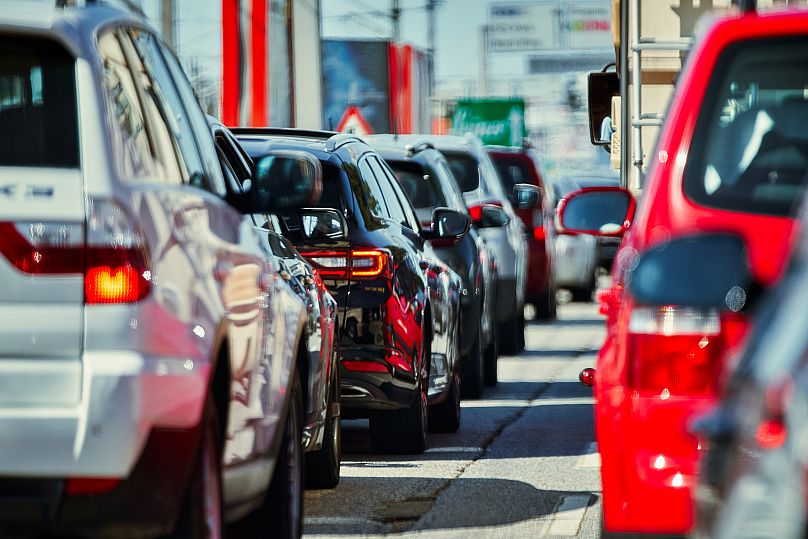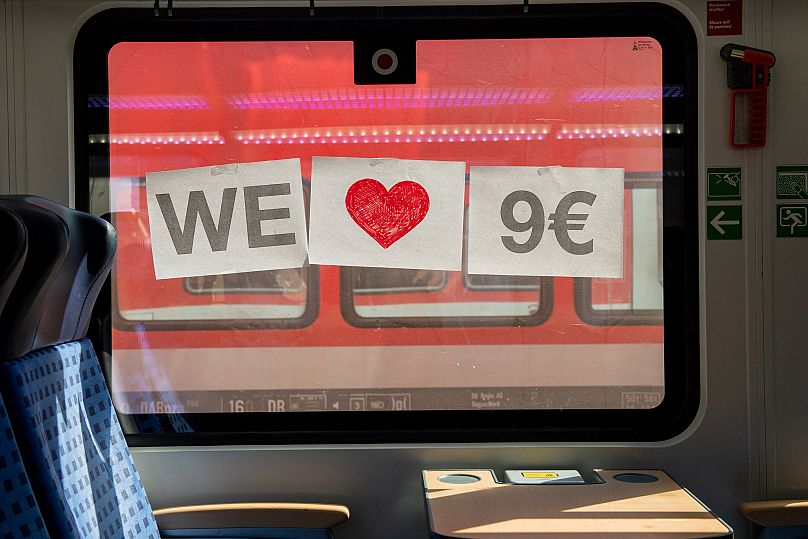As the bloc’s Russian oil embargo looms, a Greenpeace campaigner writes it’s time to overhaul our 'oil-guzzling' transport systems.
Thomas Gelin is a transport campaigner at Greenpeace’s European Unit in Brussels.
European governments have been scrambling to address spiralling energy prices this year.
Fossil gas imports, storage, price caps and electricity demand reduction have all been up for discussion among energy ministers
But the crisis response has a huge blind spot: the oil-guzzling transport sector.
An EU embargo on Russian oil starting on 5 December should force an overdue rethink from transport ministers.
Transport’s oil addiction
Around 70 per cent of all the oil used in the EU is used for transport - mostly cars, trucks and planes - with the rest almost entirely eaten up by heating.
Transport is European households’ second biggest expense, after housing, and is a huge contributor to the climate crisis, accounting for about 30 per cent of greenhouse gas emissions in the EU.
Before Russia’s invasion of Ukraine, the EU was importing over a quarter of its oil from Russia.
On 5 December, an EU embargo on Russian crude oil travelling by sea will come into effect, although imports via pipeline will continue due to an exemption to keep the Druzhba pipeline in operation - the main supply for Hungary, Slovakia, Czechia, Poland and Germany.
And from 5 February, the EU will embargo shipments of refined petrol and diesel from Russia. A price cap on Russian oil agreed by the G7 nations is still under negotiation with the EU.
How will the Russian oil embargo impact Europe’s supplies?
Once these measures come into force, there will be a major reduction in supplies of oil available in Europe. Unless governments take urgent measures to reduce demand too, prices are only going to get higher and higher, while millions of people already struggle with the cost of living.
Europe’s transport system is hugely oil dependent, and it will unfortunately take years to unhook it completely from oil. But there is valuable low-hanging fruit that the EU and national governments could be snatching.
While plans should be made to phase-out petrol and diesel cars sooner than the EU’s 2035 target, and to improve public transport, Greenpeace estimates that short-term measures could cut the EU’s total oil use by nearly 10 per cent within a few months.
This has obvious climate benefits too, as it would lead to a cut in the EU’s greenhouse gas emissions by 180 million tonnes annually - equivalent to the emissions of 120 million average cars.
What are the best emergency oil-cutting measures?
During the oil crises of the 1970s, many countries introduced car-free days to cut fuel use. Denmark, the Netherlands and Switzerland had car-free Sundays every week during the worst months of the fuel shortages. In New Zealand, drivers chose one day of the week where they would leave the car at home.
Car-free days
Today, some cities have a car-free Sunday only once a year, and tend to see noticeable improvements in air quality. A move to have nationwide car-free days every month or every week would lead to significant reductions in oil use, and may prove popular.
A recent survey of Brussels residents, for example, showed that 58 per cent were in favour of a car-free day every week.
Cutting down commutes
Working from home wasn’t as much a possibility in the 1970s, but the pandemic has shown that many jobs now don’t actually require a constant physical presence at the workplace. Video conferencing and other remote-working technology has rapidly increased in quality and acceptance, making working from home even easier than three years ago.
More days working from home means fewer commutes, and less oil burned, so is something governments should consider as an emergency measure.
Lowering speed limits
Some drivers might not even realise it, but driving at high speeds uses a lot more fuel. Most cars have optimal fuel efficiency at between 50km/h and 80km/h, so current speed limits on motorways across Europe mean drivers are burning a lot more oil per kilometre travelled.
Lowering speed limits, as well as saving huge amounts of fuel, also provides a lot of other benefits. A study by the Welsh government into their new lower default speed limits in residential areas estimates that they will save £100 million (€116) in healthcare costs in the first year alone.
Rolling out ‘climate tickets’ on trains
While less and better driving is important to reduce oil use in the short term, people also need assistance and encouragement to use the alternatives, especially in rural or disadvantaged areas.
During the pandemic and afterwards, Germany, Spain and Austria have introduced greatly reduced public transport ‘climate’ tickets, while Luxembourg has made public transport free. The EU should be pushing all other countries to follow suit, and to increase investment in public transport to make it more reliable, fast and accessible.
Banning short-haul flights
Aviation has been the fastest-growing source of greenhouse gas emissions in Europe and the industry estimates it will reach pre-COVID air traffic levels by 2024, doubling air traffic globally by 2037.
Flying burns a lot of oil per passenger per kilometre, but luckily one-third of the busiest flight routes in the EU already have train alternatives under six hours. These are routes that could be transferred from air to rail easily, cutting oil use. A ban on short-haul flights, where reasonable alternatives exist, would be a great step towards curbing wasteful fuel use.
These are just some of the short-term emergency measures that the EU and national governments could put in place without any major infrastructure investments, and start to tackle Europe’s runaway oil use.
Transport ministers must stop ignoring the major oil savings that could be made in the next few months, and also start laying track for the long-term changes to the transport sector that would put its oil addiction in the rearview mirror for good.














